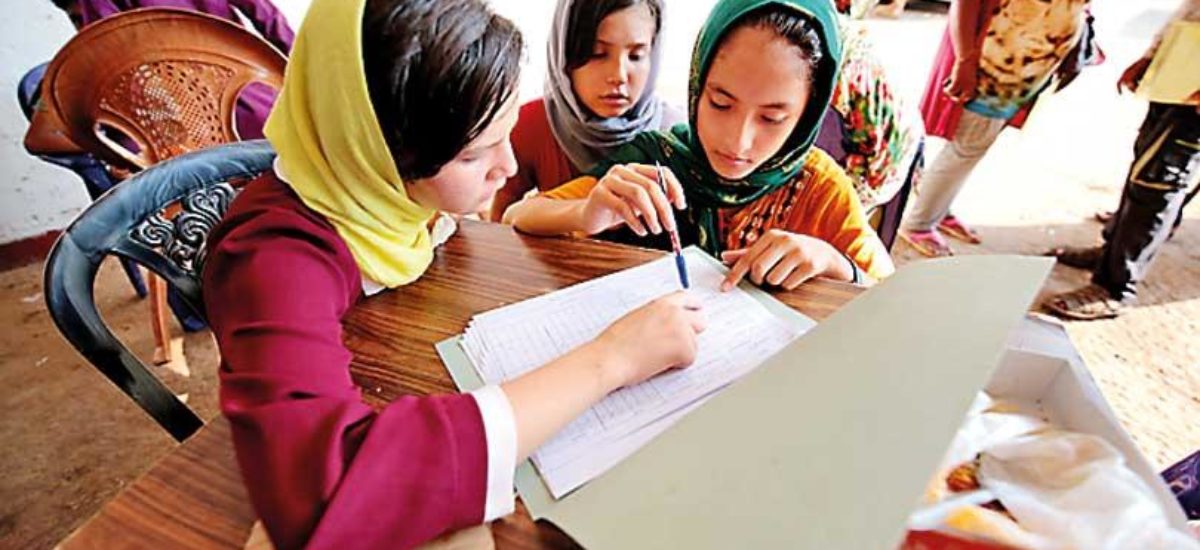Photo courtesy of Daily Mirror
Today is World Refugee Day
People all over the world get displaced from their houses, villagers, countries due to natural disasters, development projects, war, violence, discrimination and other forms of persecution. Globally, the numbers of displaced continues to increase, with 82.4 million displaced at the end of last year, with 48 million internally displaced in their own countries, 26.4 million having being recognized as refugees and 4.1 million having pending refugee applications (asylum seekers). The largest refugee hosting countries are Turkey (3.7 million), Colombia (1.7 million), Pakistan (1.4 million), Uganda (1.4 million) and Germany (1.2 million). About 1 million Sri Lankans are estimated to have become refugees in other countries, including large numbers in countries such as India, Canada, United Kingdom, Germany, France, Switzerland, Norway and Australia.
But Sri Lanka’s contribution to this massive global humanitarian crisis has been minimal – temporarily hosting only 1,239 refugees (1011 refugees and 228 asylum seekers, including children) as of end last year. The number Sri Lanka hosts has been declining in recent years and months, even as numbers hosted by other countries, particularly developing countries, are rising. Refugees in Sri Lanka are from about 15 countries, the majority being from Pakistan and then Afghanistan. Many are from persecuted communities such as Ahmadi Muslims, a significant number are Christians and there are also those who have faced persecution due to being gay, bloggers and human rights and political activists.
Through an agreement in 2005, the Sri Lankan government has agreed to facilitate the United Nations High Commissioner for Refugees (UNHCR) mandate to determine refugee status of those from other countries who come to Sri Lanka and apply for refugee status. This has been largely honored by successive governments by allowing asylum seekers to enter and stay in Sri Lanka temporarily. But there have also been violations, including by deporting on arrival those who had come to apply for asylum, one of recent case I heard being in March this year. A large number of asylum seekers and refugees were arbitrarily arrested, detained and deported in 2014.
Sri Lanka is not a party to the 1951 Refugee Convention, doesn’t have a national law and mechanism to offer permanent resettlement to any refugees and only hosts refugees temporarily for a few years. Those recognized as refugees by UNHCR have to often wait for several years, before a third country accepts them for permanent resettlement. There are also a handful in Sri Lanka who have received or awaiting confirmation of permanent resettlement under the Canada’s Private Sponsorship of Refugees (PSR), a program separate to UNHCR, where private individuals and organizations in Canada can sponsor the resettlement of refugees. The waiting period for this too is usually several years.
Old challenges
Refugee claimants in Sri Lanka don’t get any support from the government in terms of housing, food and other living expenses. UNHCR doesn’t provide any assistance to them either until and unless they are granted refugee status. Thus, they are totally depended on any of their own savings, support from relatives and friends or other well-wishers. For those who are accepted as refugees, UNHCR provides an all-inclusive amount of Rs. 10,000 per person for a month for accommodation, food, communication and transport. Families with up to one child receive Rs. 16,000 and families with two or more children receive Rs. 22,000 and families with four or more children receive Rs. 30,000. This amount has not changed for several years despite rising costs of rent, food, transport and other necessities. It is almost impossible to survive in Sri Lanka with such meagre amounts.
The government prohibits asylum seekers and refugees from engaging in employment. But in desperation, some work illegally. One refugee told me he had worked as a construction worker a few days a week, earning Rs. 1,000 per day. He explained difficulties in language and also due to the fact that he had never done such work in his home country. The inability to work legally has made them extremely vulnerable, with no recourse to legal remedies if they are abused by employers; I have the story of another who had not been paid for the work he had done. Among the refugees are artists, lawyers, engineers, teachers, beauticians, pharmacists and airline staff. Some have told me they are depressed that they are unable to use their skills, talents, experience and knowledge productively and are compelled to depend on charity of others.
Education for children is another major challenge. UNHCR covers school expenses of refugee children between the age of 6 to 10 years. But this means that children are unable to attend school or pre-school until they are 6 years and after 10 years. None of the children of asylum seekers receive educational support from UNHCR. As a result, many refugee children are unable to attend school unless their parents can afford to pay fees for private schools.
Refugees have sought and received primary health care through hospitals but when more serious health care is needed, and when external medication and medical tests are required, refugees are unable to access such services due to lack of money. Persecution suffered in their home countries, prolonged periods of stay as an asylum seeker/refugee, lack of basic needs, long delays in refugee status determination and resettlement and uncertainty about future have resulted in trauma for many refugees and their families and many need to receive counselling and mental health care.
Refugees are liable for legal action for any violations of local laws during their stay in Sri Lanka. But the Constitution doesn’t guarantee some of the basic human rights such as right to non-discrimination (12-2), protections from arbitrary arrest, detention and punishment provided for in Article 13(1-6), Freedom of Expression, Assembly, Association (14-1) and Right to Information (14A).
New challenges with COVID-19
The already difficult life of refugees was made even more difficult by COVID-19. Some refugees had tested positive for COVID-19 and given the very small houses many are compelled to live in, home quarantine maintaining physical distance is very difficult. Permanent resettlement has been delayed to several countries. Online education for school going children is a challenge, as this requires additional expenses for data and most parents don’t have sufficient devices to provide for several children. Some activities for refugees such as IT and English classes had to be stopped. When there were online activities, some lacked devices as their children were using them for education. It has become more difficult to seek healthcare, including for the sick and for pregnant and lactating mothers. Some who had been engaged in informal income generating activities lost those opportunities and it has also become more difficult to receive money from overseas. The economic crisis has also made it more difficult for the well-wishers in Sri Lanka and overseas to continue their support to refugees. This has led to refugees who had never sought financial and material assistance seeking such assistance. Delays and uncertainties about decisions on refugee applications and permanent resettlement has led to few deciding to leave Sri Lanka and return to their countries despite the risks with the hope of seeking asylum in a different country. Based on my interactions with refugees and according to those working with refugees, there is more depression and the need for counselling is increasing.
Easter Sunday crisis and new supporters
The aftermath of the Easter Sunday bombings in 2019 posed a major challenge for refugees in Sri Lanka. Around two thirds of them were displaced again, being evicted from their homes. Two Ahmadi mosques, the Negombo police station and government camp in Vavuniya hosted many of these re-displaced refugees but they had to endure terrible living conditions in these camps. Some asylum seekers were also arrested and detained.
But Easter bombings also resulted in the largest mobilization in support of refugees that I had seen. Many who had not been involved became aware, sympathetic and supportive towards refugees. Institutions such as the Human Rights Commission of Sri Lanka, some officials at the Ministry of Foreign Affairs, at least two Provincial Governors, the Negombo police and many others in official structures went out of their way to support refugees. Countries offering resettlement expedited the process and some new countries also came forward to offer permanent resettlement. Local, national and international NGOs became involved in advocating rights of refugees in Sri Lanka.
Individuals and religious communities opened their doors and offered refuge in their houses. Many generous persons contributed money for food, medicine and other essentials. Artists helped in cultural activities, especially for children. Lawyers took up cases of those detained. Volunteers came forward to document what was happening and accompany most vulnerable to hospitals and other places. Journalists, including from mainstream, alternative and new media, provided coverage that highlighted plight of refugees. Students and youth also engaged in solidarity actions. Since then, the number of discussions and events about refugees have increased. I and another colleague had opportunities to lecture about refugees to university students and some of them have expressed interest to get more involved. Overall, the post-Easter bombing refugee crisis brought about a momentum in activism to support refugees in a way not seen before, some of which still continues.
Today, World Refugee Day, is a time for Sri Lankans to renew our commitments to enable a more welcoming and supportive environment for refugees where their rights, dignity and wellbeing are guaranteed through our constitution, laws, policies and practice. Instead of fear and negative thoughts, we must warmly welcome refugees and feel proud that they have chosen to come to us in their time of trouble and desperation.


